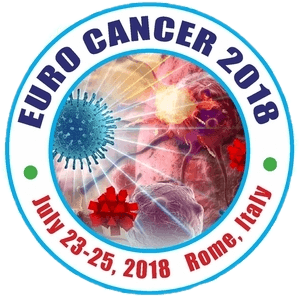
Aye Myat Thwe
University of Dundee, UK
Title: EGF and TGFα motogenic activities are mediated by the EGF receptor: identification of the signaling pathways involved in oral cancer
Biography
Biography: Aye Myat Thwe
Abstract
Epithelial to mesenchymal transition (EMT) is the process by which cells change shape from being tightly connected epithelial cells to more motile mesenchymal cells. EMT has been reported to facilitate cancer cell migration. Cell motility is an initial first step on the road to metastasis. Epidermal growth factor (EGFR) has been reported to be overexpressed in oral cancer and is often related with poor prognosis. Epidermal growth factor (EGF) and transforming growth factorα (TGFα) are ligands that bind to EGFR and can affect a number of different cellular processes, including cell proliferation, migration, angiogenesis and inhibition of apoptosis. We aimed to measure proliferation, migration, morphology change of HSG, AZA1, HaCaT, TYS, by cell counting, photo microscopic image capturing and scratch assay in relation with addition of growth factors at 1 ng/ml, 10 ng/ml, 50 ng/ml and 24 hrs, 48 hrs, 72 hrs. 50 ng/ml of growth factors induce cell morphology changes EMT like phenotype with finger like projection, cell scattering and increase cell migration while no reliable different in cell proliferation. These morphology changes are completely blocked by one hour pre-treatment with 5 µM gefitinib (EGFR tyrosine kinase inhibitor, 5 µM erlotinib (EGFR kinase inhibitor) and PD25 µM ( inhibitors of MEK1 and MAKP kinase) in HSG and AZA1 cell lines. The cell migration of TYS and HSG cell lines are completely blocked by one hour pre-treatment with one hour pre-treatment with 5 µM gefitinib (EGFR tyrosine kinase inhibitor, 5 µM erlotinib (EGFR kinase inhibitor) and PD25 µM (inhibitors of MEK1 and MAKP kinase).

